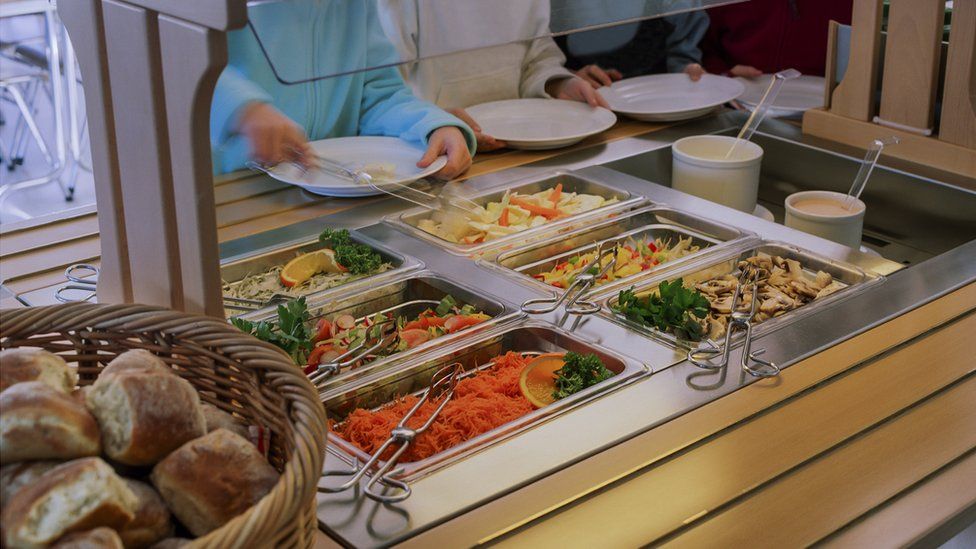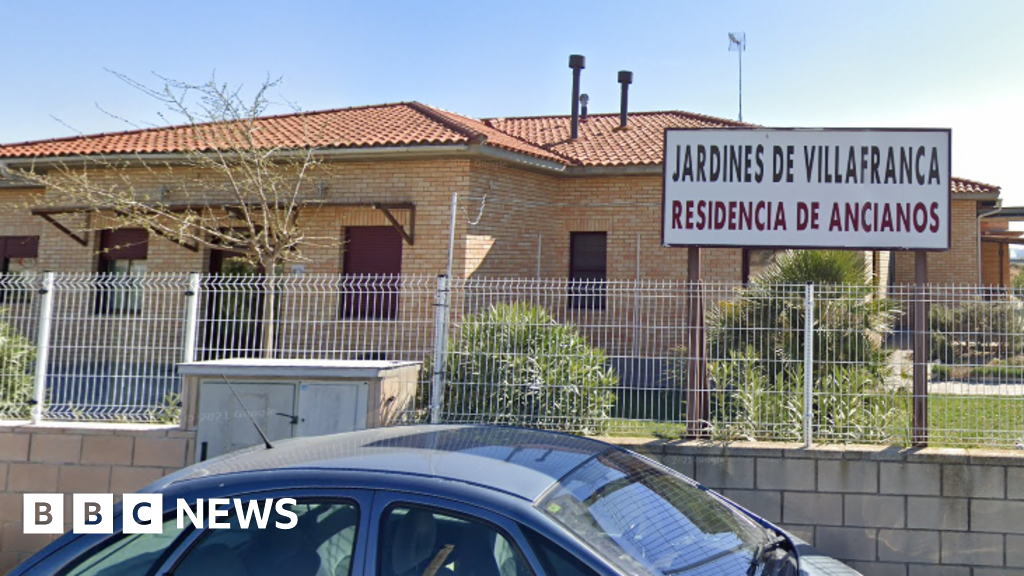ARTICLE AD BOX
 Image source, Getty Images
Image source, Getty Images
Nyack Middle School and food vendor Aramark have apologised for the meal (file image)
By Madeline Halpert
BBC News, New York
A New York school has apologised after serving what it called an "inexcusably insensitive" lunch on the first day of Black History Month.
Students at Nyack Middle School were served fried chicken, waffles and watermelon on 1 February.
The foods have been used as racist tropes against African Americans.
Officials from the school said its food supplier - Aramark - had changed the planned meal of cheesesteaks, broccoli and fruit.
"We are extremely disappointed by this regrettable situation and apologise to the entire Nyack community for the cultural insensitivity displayed by our food service provider," Principal David Johnson wrote in a 2 February letter to parents.
The foods the supplier picked "reinforce negative stereotypes concerning the African American community", he said.
Honore Santiago, a student at the school, said she was surprised when she saw the meal in her cafeteria.
"They were asking people if they want watermelon and I remember being confused because it's not in season," the sixth-grade student told local news outlet WABC.
She said she told her mother when she got home and both were angered by the lunch. "I just hope that they won't do it again, at a different school or my school," she told the BBC's US partner CBS News.
School food vendor Aramark apologised for the incident, which it called an "inexcusable mistake" that "never should have happened".
The food vendor has sparked a backlash over meal choices in the past.
In 2018, New York University severed ties with the company after a Black History Month lunch it offered at the university included red Kool-Aid and watermelon-flavoured water as well as other foods that have been used as racist tropes.
And in 2011, the food vendor served fried chicken and waffles to students at the University of California on Martin Luther King Jr Day.
Watermelon became a racist stereotype during the Jim Crow era in the US, according to the National Museum of African American History and Culture. The fruit was once a symbol of self-sufficiency among southern African Americans who grew and sold watermelons after emancipation, but it was later used as a disparaging symbol.

 1 year ago
25
1 year ago
25








 English (US)
English (US)